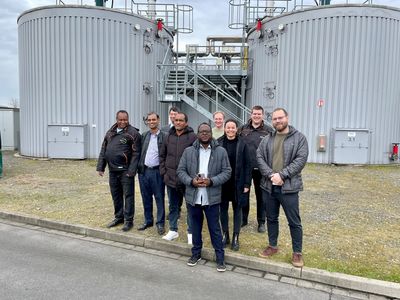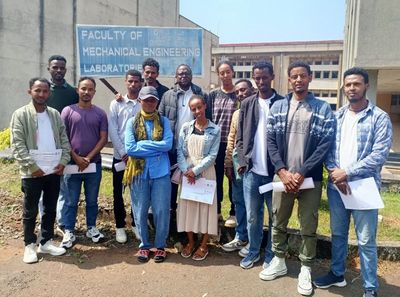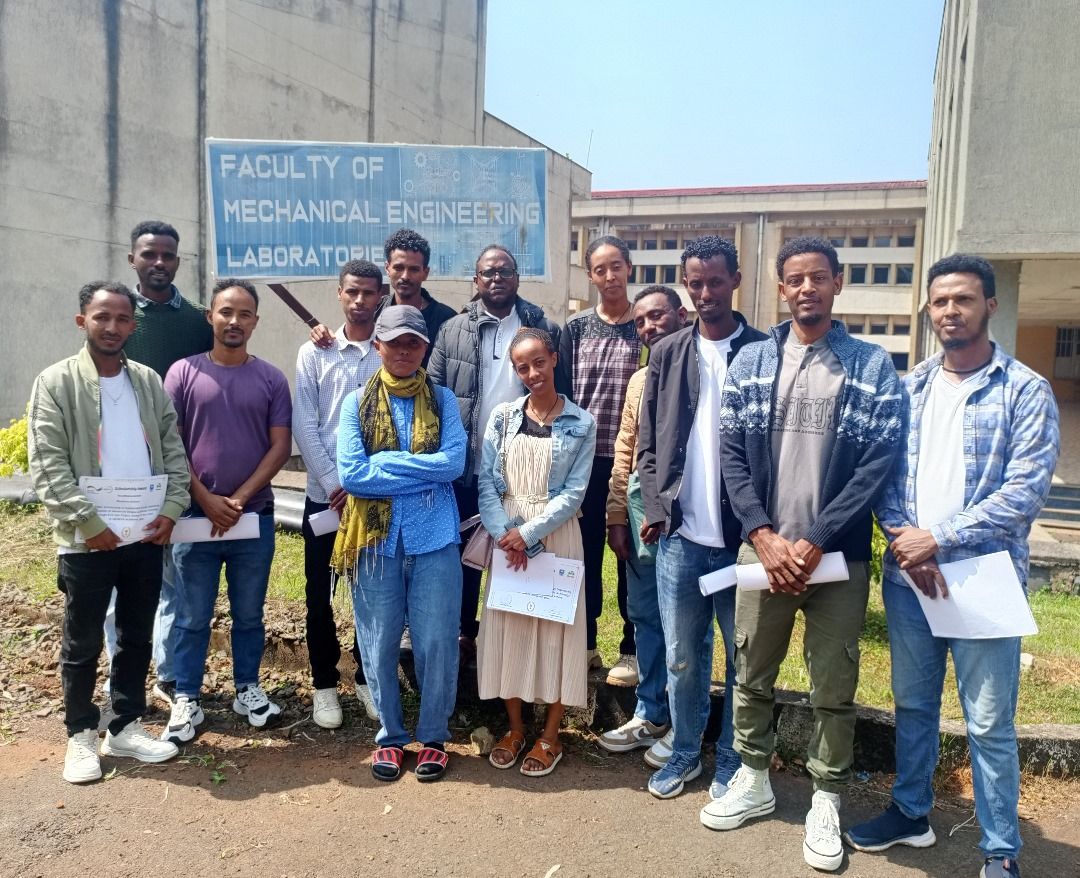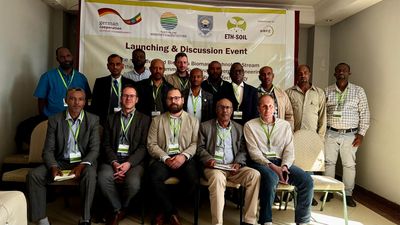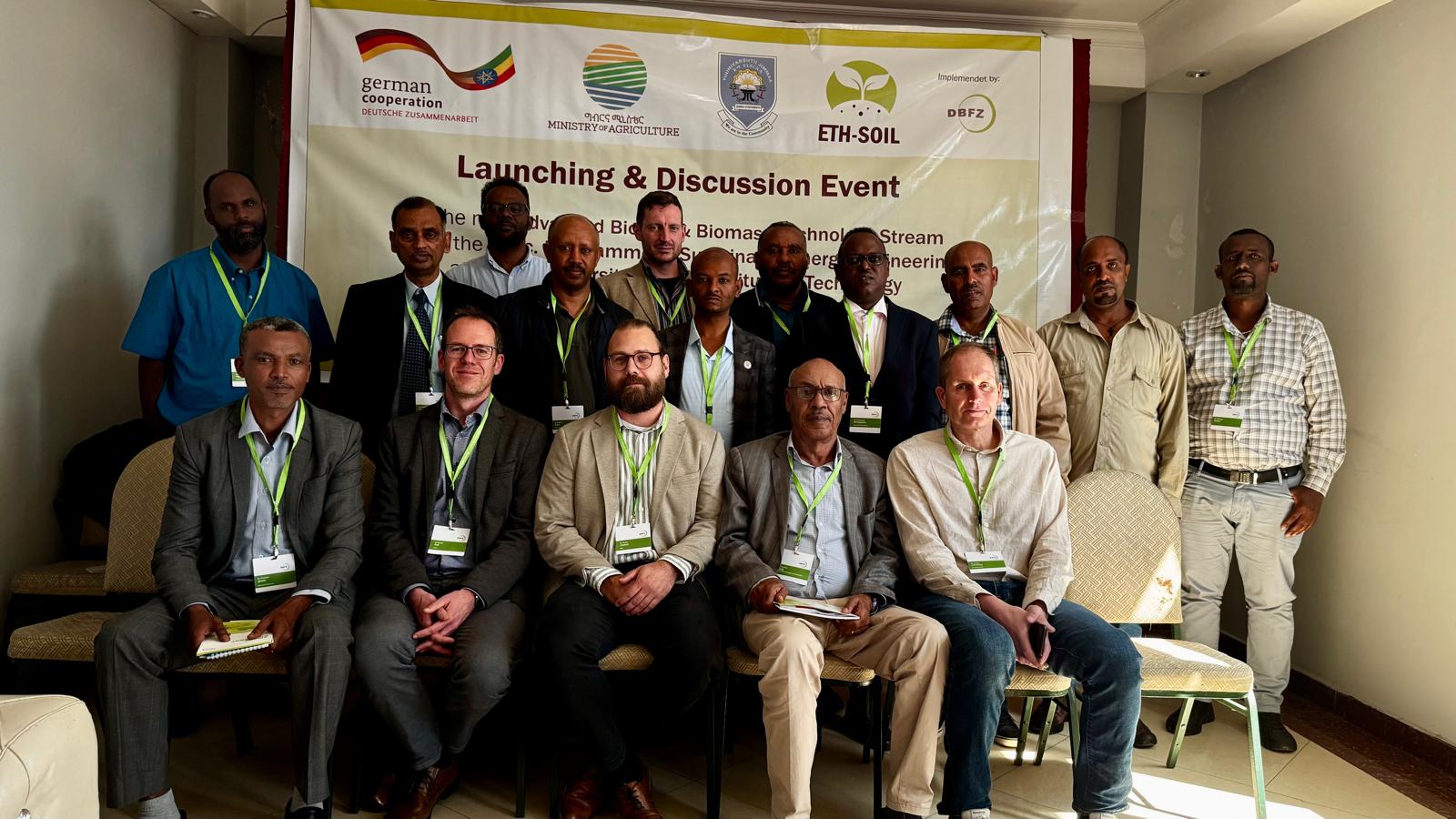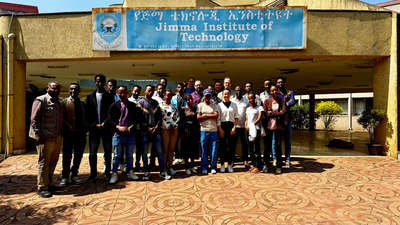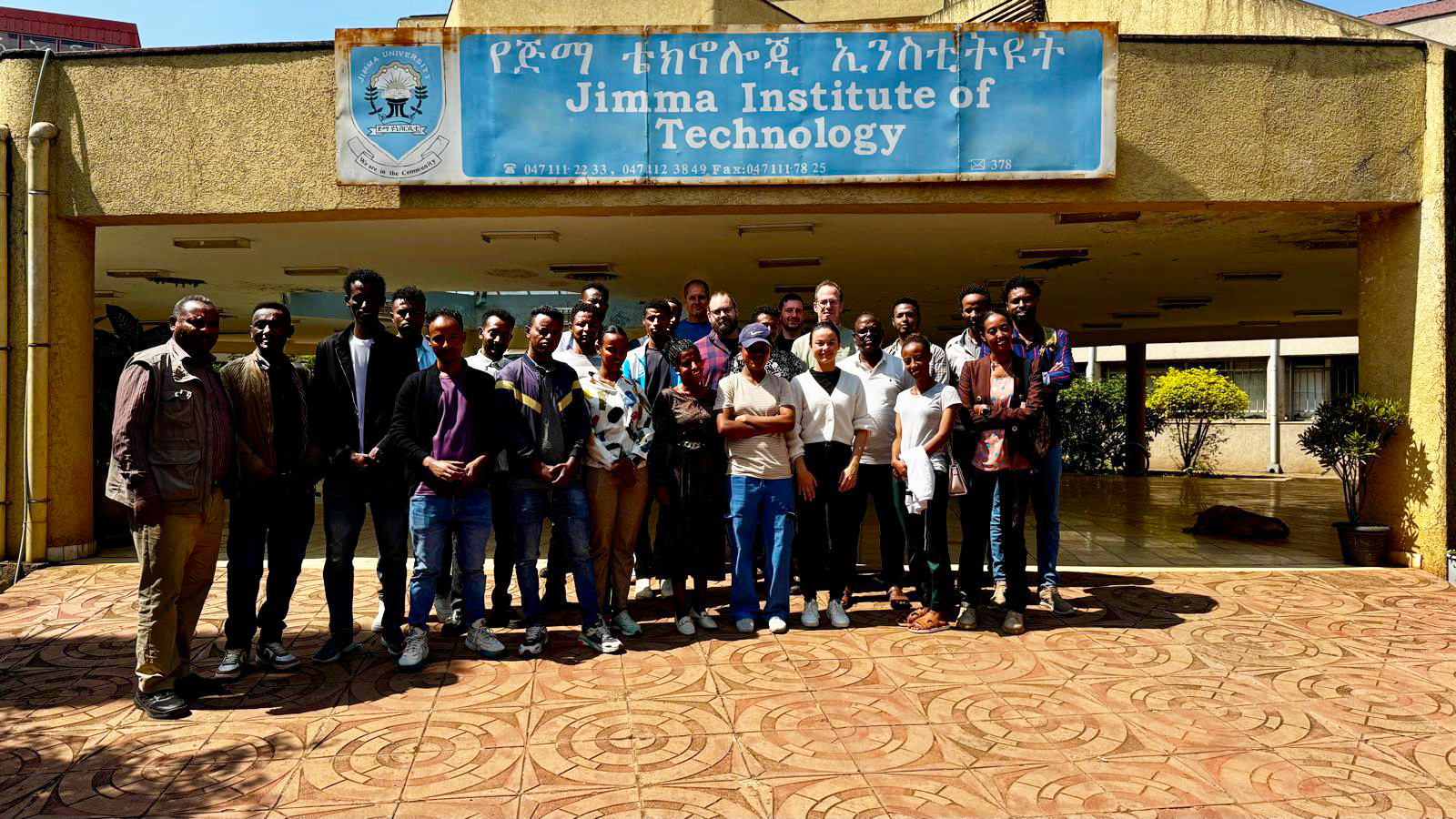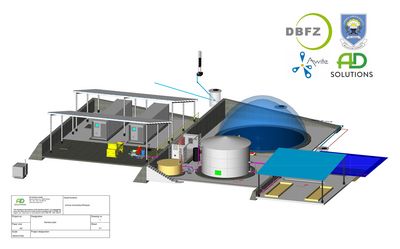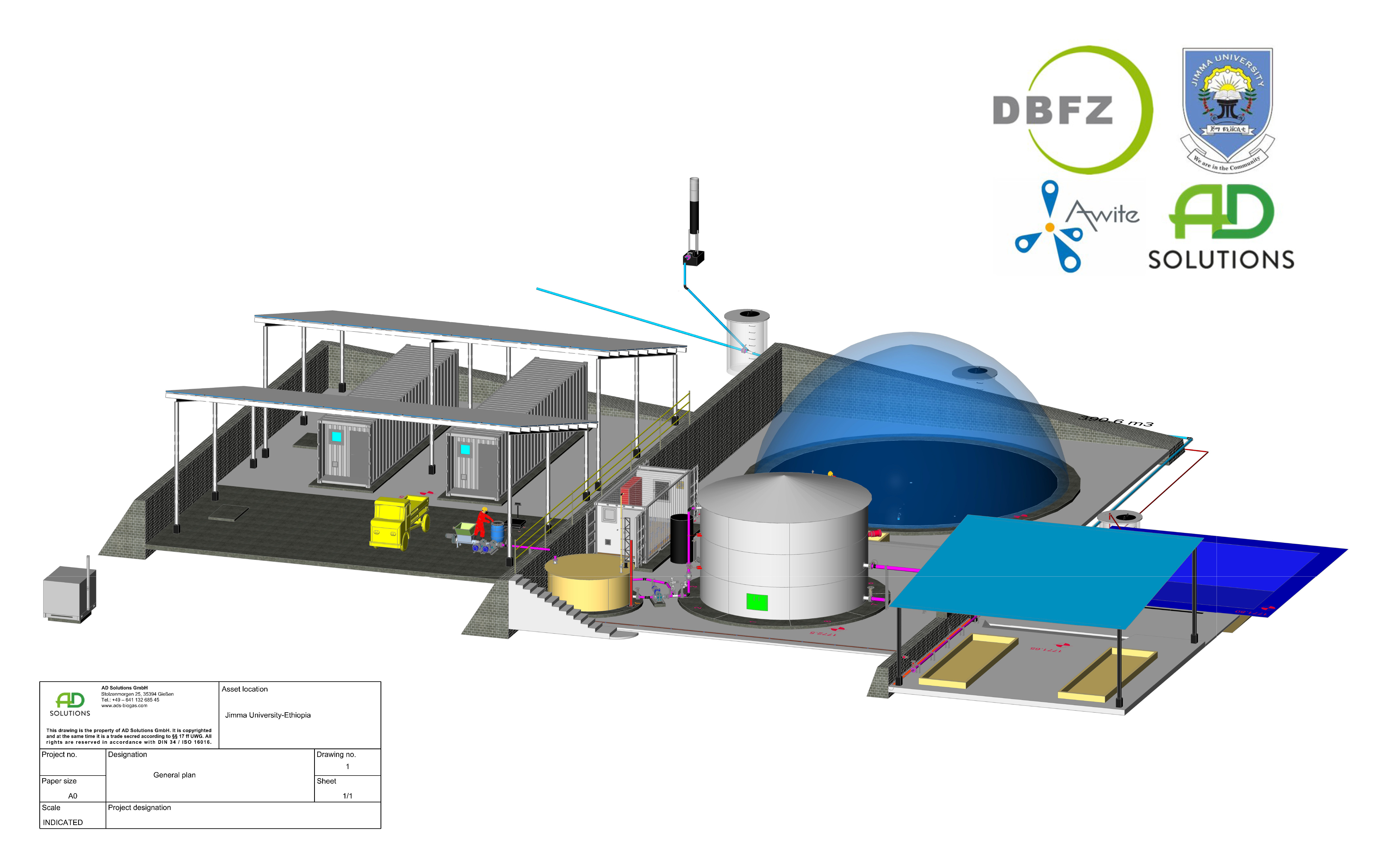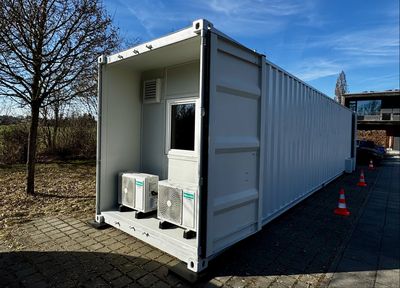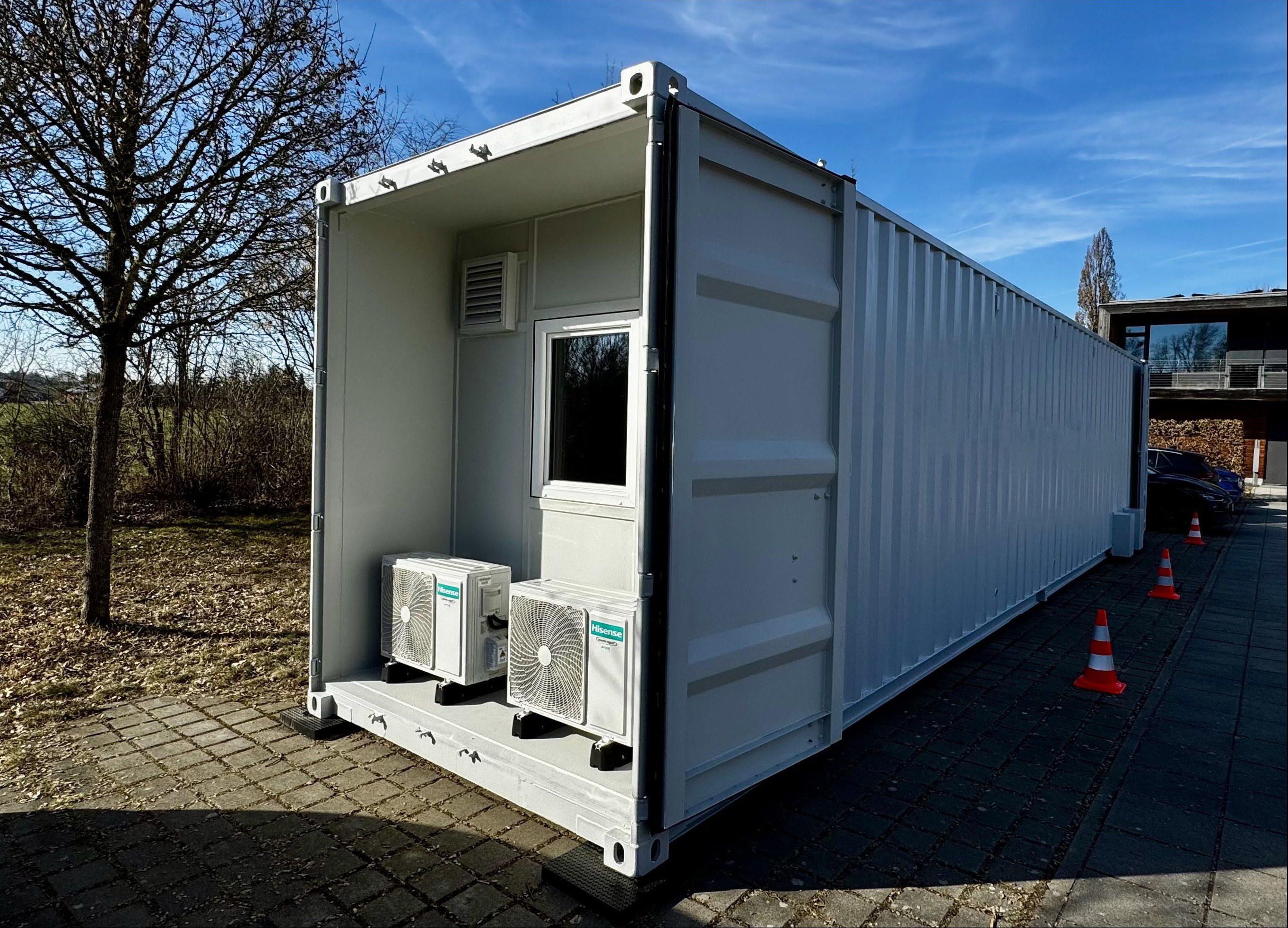ETH-Soil builds capacities for sustainable use of biogas in Ethiopia
14.05.2025
DBFZ and Jimma University (JU) partnered in ETH-Soil to sustainably develop capacities in the area of biogas in Ethiopia to foster the local production of fertilisers from agricultural residues. Digestates from biogas plants can be used to load biochar with nutrients through co-composting. The result is organic biochar-based fertiliser, which provides nutrients to crops through periods of heavy rain, sequesters carbon in the soil and allows farmers to achieve higher yields on rehabilitated soils.
To achieve soil amelioration through the application of biochar-based fertilisers and to harvest valuable digestates, biogas plants in Ethiopia must be operated effectively. Against this background, DBFZ and Jimma University partnered in ETH-Soil to introduce a new specialisation stream within the existing M.Sc. programme Sustainable Energy Engineering at Jimma Institute of Technology (JIT). In the future, Jimma University will be able to combine academic education with practical training at the planned biogas training facility consisting of a modern biogas plant and a biogas laboratory. The biogas plant will supply the JIT canteen with biogas for cooking and thus partly replace firewood, which is currently used to provide 6000 meals daily to the university students.
Training future biogas experts at Jimma University
The development of the new specialization stream within the Sustainable Energy Engineering M.Sc. started in February 2024, when four lecturers from Jimma Institute of Technology (JIT) took part in a four-week study trip to Germany. Among other things, the participants received a 5-day introduction to biogas production from the Biogas Association in Freising and biogas plant operator training from the IBBK in Kirchberg. In addition, the participants exchanged information on curriculum structures and teaching methods with University of Hohenheim near Stuttgart, University of Rostock, Ingolstadt University of Applied Sciences and Nordhausen University of Applied Sciences. The State Office for Environment, Agriculture and Geology (LfULG) in Nossen and the engineering office AEV Energy in Dresden gave insights into their training and planning activities.
Using the acquired knowledge and with the support of the DBFZ colleagues, teaching materials have since been developed for the four modules of the new bioenergy specialisation in the ‘M.Sc. Sustainable Energy Engineering’ Master's degree programme. This specialisation was offered for the first time in the winter semester 2024/25. The introduction of the training programme is financially supported by a scholarship for 14 students from ETH-Soil project funds. The training of the first cohort of students will be completed by 2026.
Launch Event for the Master specialisation
On 5 December 2024, the official launch of the revised M.Sc. programme took place in Addis Ababa. The primary objective of this event was to raise awareness for the new specialisation stream among private and public stakeholders in the Ethiopian biogas sector as the newly built competences among future graduates will contribute to advancing the use of biogas technology for both energetic and agricultural purposes. In this regard, the stakeholders’ dialogue during the event benefitted much from the insights of representatives of both, the Ethiopian Ministry of Agriculture, and the Ethiopian Ministry of Water and Energy. Achievements were discussed as well as remaining challenges, such as technical appliances, maintenance challenges, unclear legal frameworks (norms) and the needs in higher education and practical training.
As highlighted by Jimma University president, Dr. Jemal Abafita, the Launching Event was a first step on the way to creating a platform for experimentation, collaboration, and the development of cutting-edge technologies to drive forward the biogas sector.
The event was covered by NBC Ethiopia, the main Ethiopian television broadcasting channel, helping to further broaden the network of biogas sector stakeholders and to reach out to a wider audience. Both, Shewangizaw Werkagegnehu Demissie, the JIT Industry Linkage and Technology Transfer Director, as well as Dr. Getachew Eshete Beyenne, the ETH-Soil Project Coordinator on behalf of DBFZ, got the opportunity to explain the relevance of the M.Sc. and the new JIT research and training facilities to a broader audience. You can watch the video on our LinkedIn profile.
Future ETH-Soil events will again bring relevant stakeholders together – for the advancement of circular resource use, sustainability-advancing technologies and agricultural transformation.
Building a modern biogas plant and laboratory
DBFZ and Jimma University employ ETH-Soil project funding to collaborate with Awite and AD Solutions for the construction of a modern biogas plant with a capacity of 2 tons of feedstock daily and a biogas laboratory with up to 10 work stations for training and research purposes. The close proximity of the units enables interaction and synergies between science and practice. The plant is integrated into the university's waste logistics concept and is reliably powered by a photovoltaic system with battery storage even during power outages. The training biogas plant was planned in accordance with German standards for plant and occupational safety and adapted to the climatic conditions on site in order to ensure long-term and reliable operation. The biogas plant will supply the university’s canteen with biogas, which will partly substitute fuelwood in the kitchen. The canteen, on the other hand, supplies the biogas plant with kitchen and food wastes, thus ensuring a circular and holistic use concept.
At the moment, the required infrastructure for the plant is being installed. The construction works are expected to be finalised in the beginning of 2026.
Biogas plant
- Kitchen scraps and food wastes from the nearby university canteen will serve as feedstock using the University's existing waste logistic concept. To date, they are unused and deposed of in landfills emitting green house gases.
- The produced biogas - provided via direct gas supply line - replaces woody fuels in the canteen which lowers costs and emissions.
- Digestate, the byproduct of the biogas production, can be applied to close-by testing fields to improve soil fertility.
Biogas laboratory
- Representation of the entire biogas process: preparation and characterisation of the substrate, determination of methane yield according to industry standards (VDI 4630), practical tests with 6 continuous stirred-tank reactors
- Modular design enables adaptability for future research projects
- PV and battery system ensures continuous operation
The ETH-Soil project at the University of Jimma demonstrates how innovative biogas technology and practical training can contribute to the sustainable improvement of food security and soil fertility in Ethiopia. The training biogas plant combines research, training and practical application, thus contributing to the sustainable transformation of the region and to the advancement of the country's biogas practice.
